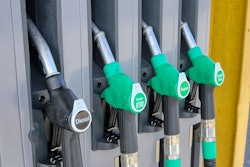
TheWestern Grain Elevator Association(WGEA) is raising a cautionary flag with respect to rail capacity, rail service and supply chain improvements in western Canada, in response to recent press and media reports that imply that Canada’s rail service woes have been fixed.
While the WGEA does not dispute that increased volumes of grain have been moved by rail, the service levels still fall short of demand, which is troubling in the face of future requirements for rail capacity.
“Grain production is increasing at a rate of 3% per year, which means exports will grow at a rate closer to 4% due to the fact that domestic consumption is not growing at the same rate as production,” said Wade Sobkowich, Executive Director of the WGEA.
Faced with this growing production, grain companies have expanded country elevator storage by 13.9%, port terminal storage by 11.2% and increased system throughput by 16.5% over the last five years. Recent increases in rail capacity, however, fail to keep pace with this increased production and grain handling network growth. According to the Federal Grain Monitor, over the same five-year period, railway fleet sizes have increased by 2.5% and loaded weight per car has increased by 3.1%. However, car cycle times (the time in which rail cars complete their loading/unloading cycle) have grown by 19%.
Sobkowich adds that with respect to rail service, grain exports have been the beneficiary of reduced demand from other sectors and from a very mild winter that has limited weather-related disruptions. According to Port of Vancouver statistics, the 2020 shipping season saw very sharp reductions in port activity for the automotive, coal and foreign breakbulk sectors. Conversely, grain shipments grew by 28% for the year.
“What is going to happen after the pandemic when things return to normal and other sectors throttle up again? What will happen in 2021-22 if we have a normal winter?”
According to the recent media reports it may seem that we have turned the page on the challenging and inconsistent rail service levels of the past, however, the WGEA is very concerned that without an increased rate of rail capacity growth and better supply chain execution, we are headed toward greater disparity between service, and demand for service, over the coming years.
The WGEA is calling on the railways to expand capacity and rail service offerings to the grain sector to ensure that the growing needs of the sector are consistently met.
The WGEA is an association of grain businesses operating in Canada which collectively handle in excess of 95% of western Canada’s bulk grain exports. Its members account for approximately one fifth of bulk railway revenue in Canada and pay annual total freight of over one and a half billion dollars.





















